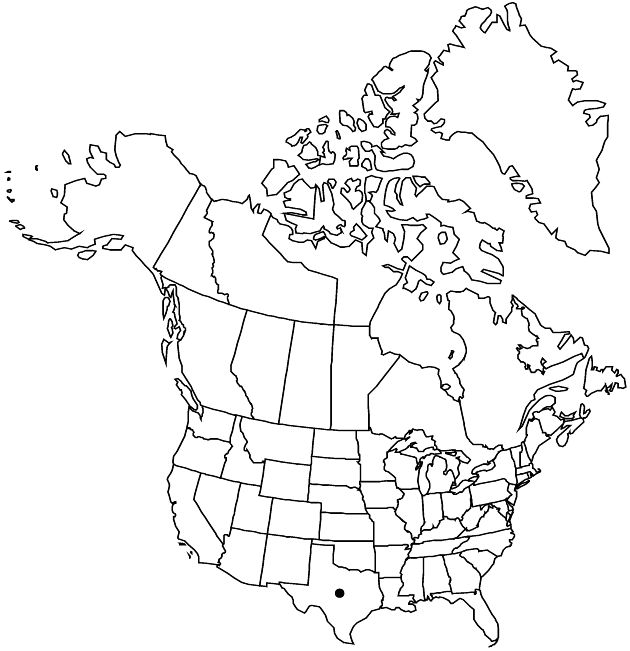Difference between revisions of "Helianthus praecox"
Boston J. Nat. Hist. 5: 221. 1847.
FNA>Volume Importer |
imported>Volume Importer |
||
| (One intermediate revision by the same user not shown) | |||
| Line 64: | Line 64: | ||
|publication year=1847 | |publication year=1847 | ||
|special status= | |special status= | ||
| − | |source xml=https:// | + | |source xml=https://bitbucket.org/aafc-mbb/fna-data-curation/src/2e0870ddd59836b60bcf96646a41e87ea5a5943a/coarse_grained_fna_xml/V19-20-21/V21_355.xml |
|tribe=Asteraceae tribe Heliantheae | |tribe=Asteraceae tribe Heliantheae | ||
|subtribe=Asteraceae (tribe Heliantheae) subtribe Helianthinae | |subtribe=Asteraceae (tribe Heliantheae) subtribe Helianthinae | ||
Latest revision as of 20:11, 5 November 2020
Annuals, 40–150 cm. Stems erect to ± procumbent, hispid, hispid-hirsute, or hirsute. Leaves mostly cauline; mostly opposite; petioles 5–9 cm; blades deltate to ovate (sometimes constricted near middles, subsp. praecox), 3–9 × 2–7 cm, bases cordate, cuneate, or truncate, margins serrate to serrulate, abaxial faces hirsute to hispid, usually not gland-dotted. Heads 1–3. Peduncles 15–40 cm. Involucres hemispheric, 13–18 mm diam. Phyllaries 30–39, lanceolate, 9–15 × 2–4 mm, apices short-attenuate to short-acuminate (subsp. praecox), abaxial faces hispidulous to hispid-hirsute. Paleae 6.5–8 mm, 3-toothed (middle teeth acuminate, equaling or slightly surpassing discs, apices puberulent or bearded, hairs whitish). Ray florets 11–16; laminae 16–26 mm. Disc florets 35+; corollas 5–6 mm, lobes reddish; anthers dark, appendages purplish red (style branches reddish). Cypselae 2.5–3.3 mm, ± villous; pappi of 2 aristate scales 1.2–1.5 mm.
Discussion
Subspecies 3 (3 in the flora).
The taxa of Helianthus praecox were placed as subspecies of H. debilis by C. B. Heiser (1956). They were separated later, primarily on the basis of crossing results (Heiser et al. 1969). The subspecies appear to form a grade between H. debilis and H. petiolaris.
Selected References
None.
Lower Taxa
Key
| 1 | Stems procumbent to erect, branches horizontal, moderately hispid or hirsute; phyllary apices short-acuminate; paleae: middle teeth puberulent | Helianthus praecox subsp. praecox |
| 1 | Stems erect, branches ascending, moderately or densely hirsute or hispid-hirsute; phyllary apices short-attenuate; paleae: middle teeth white-villous ("bearded"). | > 2 |
| 2 | Stems moderately hirsute; leaves (at least larger) 3–7.5(–8) cm; peduncles 20–30(–35) cm; rays 11–13 | Helianthus praecox subsp. runyonii |
| 2 | Stems densely hirsute or hispid-hirsute; leaves (larger) 8–9 cm; peduncles (25–)30–40 cm; rays usually 14–16 | Helianthus praecox subsp. hirtus |
